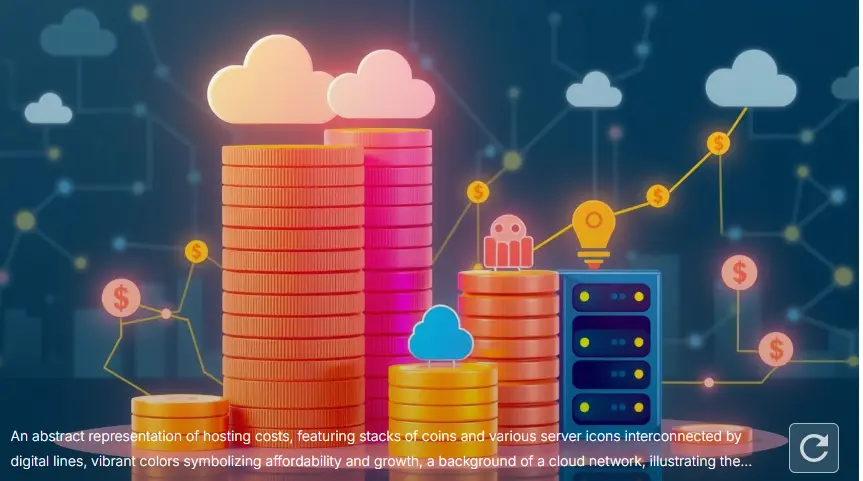What Is Green Web Hosting and Why Does It Matter?
As environmental concerns increasingly influence consumer choices and corporate practices, green web hosting has emerged as a vital concept in the realm of web hosting. This approach not only addresses the growing need for sustainable practices but also aligns with global efforts to combat climate change.

In this comprehensive guide, we’ll explore what green web hosting entails, its significance, and why it should be a key consideration for anyone choosing a web hosting provider.
1. Understanding Green Web Hosting
1.1 What is Green Web Hosting?
Green web hosting refers to web hosting services that aim to minimize their environmental impact. This is achieved through various means such as using renewable energy sources, implementing energy-efficient technologies, and promoting sustainable practices. The primary goal is to reduce the carbon footprint associated with running web servers and data centers.
1.2 Key Features of Green Web Hosting
- Renewable Energy: Providers use energy from renewable sources like wind, solar, or hydro to power their servers and data centers.
- Energy Efficiency: They adopt energy-efficient hardware and cooling systems to reduce overall energy consumption.
- Carbon Offsetting: Providers may invest in carbon offset programs to neutralize the carbon emissions generated by their operations.
- Sustainable Practices: Involves eco-friendly data center designs, recycling programs, and reducing electronic waste.
2. The Environmental Impact of Traditional Web Hosting
2.1 High Energy Consumption
Traditional web hosting can be highly energy-intensive. Data centers, which house servers and other critical infrastructure, consume substantial amounts of electricity for operation and cooling. The energy demands can contribute significantly to carbon emissions, especially if sourced from non-renewable sources.
2.2 Carbon Footprint
The carbon footprint of traditional web hosting is substantial due to the reliance on fossil fuels. As data centers operate 24/7, they continuously contribute to greenhouse gas emissions, exacerbating global warming and climate change.
2.3 Electronic Waste
The rapid advancement in technology often leads to frequent hardware upgrades, resulting in increased electronic waste. Many traditional hosting providers may not have robust recycling programs in place, leading to more waste and environmental impact.
3. Benefits of Green Web Hosting
3.1 Environmental Benefits
- Reduced Carbon Emissions: By using renewable energy and implementing energy-efficient practices, green web hosting significantly lowers carbon emissions associated with web hosting operations.
- Conservation of Resources: Energy-efficient technologies and practices help conserve natural resources and reduce the overall environmental footprint.
3.2 Economic Benefits
- Cost Savings: Energy-efficient practices and renewable energy sources can lead to long-term cost savings for hosting providers. These savings may be passed on to customers in the form of lower pricing.
- Innovation and Efficiency: Green hosting providers often invest in cutting-edge technologies, leading to improved efficiency and potentially lower operational costs.
3.3 Corporate Responsibility and Brand Image
- Positive Brand Image: Companies that adopt green web hosting demonstrate their commitment to environmental sustainability, which can enhance their brand image and appeal to eco-conscious customers.
- Regulatory Compliance: As regulations around environmental impact become stricter, adopting green practices can help companies stay ahead of compliance requirements and avoid potential penalties.
4. Choosing a Green Web Hosting Provider
4.1 Research and Evaluate Providers
- Renewable Energy Usage: Verify that the hosting provider uses renewable energy sources to power their data centers. Look for certifications or reports that confirm their commitment to sustainability.
- Energy Efficiency: Assess the provider’s use of energy-efficient technologies and practices, such as advanced cooling systems and energy-efficient hardware.
- Carbon Offsetting: Check if the provider participates in carbon offset programs or supports environmental initiatives to counterbalance their emissions.
4.2 Certifications and Standards
- Energy Star: Look for hosting providers with Energy Star certifications, which indicate energy-efficient products and practices.
- Green Business Certification: Providers with this certification adhere to sustainable business practices and environmental standards.
- ISO 14001: This certification denotes a commitment to effective environmental management and continuous improvement.
4.3 Cost Considerations
- Pricing: Green web hosting may sometimes come at a premium due to the investment in renewable energy and efficient technologies. Evaluate the cost in relation to the environmental benefits and long-term savings.
- Value: Consider the overall value of choosing a green hosting provider, including potential cost savings from energy efficiency and the positive impact on your brand’s image.
5. Implementing Green Practices in Your Own Web Hosting
5.1 Optimize Your Website
- Efficient Coding: Use optimized code and lightweight design elements to reduce server load and energy consumption.
- Content Delivery Networks (CDNs): Utilize CDNs to distribute content more efficiently, reducing the strain on your primary server and energy consumption.
5.2 Promote Green Hosting
- Support Green Initiatives: Advocate for and support green web hosting practices in your industry or community to encourage broader adoption.
- Share Your Commitment: Highlight your use of green web hosting on your website and marketing materials to showcase your commitment to sustainability.
6. Common Questions
6.1 How does green web hosting compare to traditional hosting in terms of performance?
Green web hosting providers often use advanced technologies that can enhance performance while reducing environmental impact. In many cases, the performance of green hosting is comparable to or better than traditional hosting.
6.2 Is green web hosting more expensive than traditional hosting?
Green web hosting can be more expensive due to the investment in renewable energy and energy-efficient technologies. However, the cost is often offset by long-term savings and the benefits of supporting sustainable practices.
6.3 Can I transition to green web hosting from my current provider?
Yes, you can transition to green web hosting by selecting a provider that meets your environmental criteria and migrating your website data. Many green hosting providers offer support for migration and can assist with the process.
6.4 What are some examples of green web hosting providers?
Several reputable green web hosting providers include GreenGeeks, A2 Hosting (with its Green Hosting initiative), and HostPapa. These companies are known for their commitment to environmental sustainability and use of renewable energy.
6.5 How can I verify if a hosting provider is genuinely green?
To verify a hosting provider’s green credentials, review their sustainability reports, certifications, and third-party audits. Look for transparency in their energy sources and practices, and seek recommendations or reviews from other users.
7. Conclusion
Green web hosting represents a critical step towards a more sustainable and environmentally friendly internet. By choosing hosting providers that prioritize renewable energy, energy efficiency, and carbon offsetting, you contribute to reducing the carbon footprint of web operations and promote corporate responsibility. As environmental concerns continue to shape consumer preferences and regulatory landscapes, adopting green web hosting practices not only benefits the planet but also enhances your brand’s image and aligns with modern sustainability goals.


